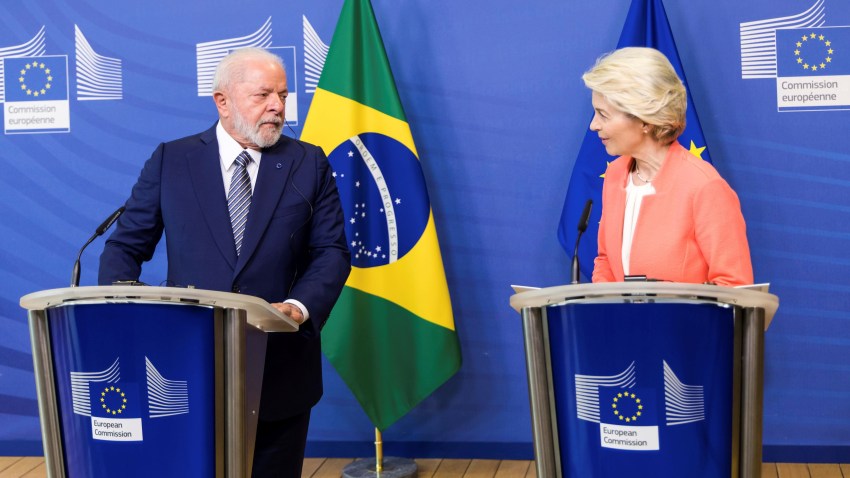Last week, NATO leaders congregated in Vilnius, Lithuania, to deliberate over the extent of support they should offer Ukraine in its struggle against Russia. The members of the alliance, which will soon include Sweden, mulled over the potential acceleration of Ukraine’s membership bid and the increase in their own military spending needed to counter Russian aggression, while committing their long-term support to helping Ukraine defeat Russia.
While the summit had to navigate diverse perspectives on all the above-mentioned points, NATO is undivided in both its denunciation of Russia’s invasion and its endorsement of Ukraine’s efforts to reclaim its territory currently occupied by Russia. The crux of any internal debates revolves around how to implement of these measures without inadvertently escalating conflict or worsening the situation.
This week, at another gathering in Brussels to discuss the relationship between the states of the Western Hemisphere—excluding the U.S. and Canada—and those of the European Union, the dynamics will be starkly different. Early indications suggest that differences over Ukraine could potentially hinder progress on other topics at the summit between leaders of the Community of Latin American and Caribbean States, or CELAC, and their EU counterparts.

